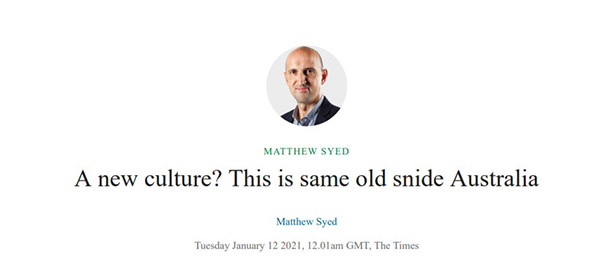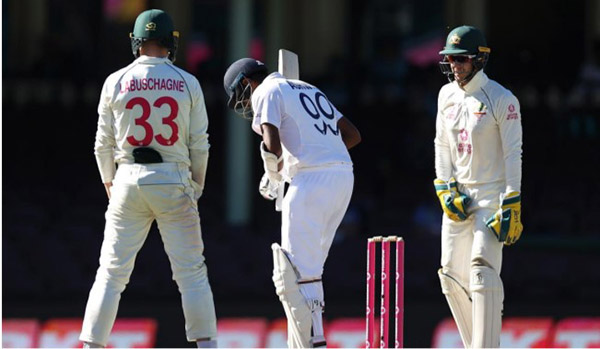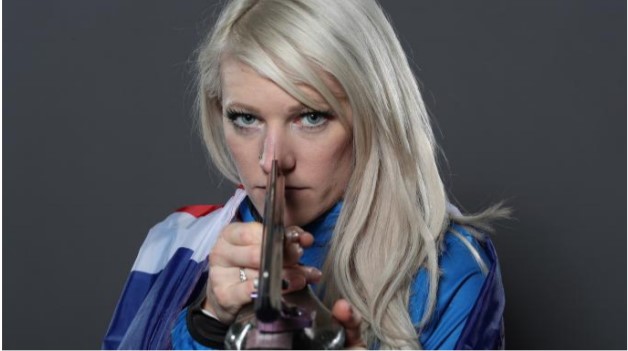A new culture? This is same old snide Australia

I hope nobody is surprised by the latest slippage of the Australian mask. As India battled valiantly to save the third Test in Sydney, Tim Paine, the Australia captain, swore towards an umpire, abused one opponent, Hanuma Vihari — who, despite a hamstring injury, soaked up 161 balls to help India to a draw — and called another, Ravichandran Ashwin, a “dickhead”. Steve Smith, for his part, scuffed up the crease, hoping — it appeared — to push Rishabh Pant, who had developed an impressive rhythm, out of his stride.
In case you’d forgotten, this was supposed to be Australia 2.0. A new version of the old team. In the aftermath of Sandpapergate — in which the Aussies were found guilty of tampering with aball to gain an unfair advantage during a Test match against South Africa in March 2018 — we were told of a watershed, a step change in attitudes. Cricket Australia commissioned a review that was not only about punishing the miscreants but finding the “cultural root causes”. Hell, the prime minister even got in on the act.
The result was a 145-page report by a body calling itself the Ethics Centre. It was presented as the document that had uncovered everything that was rotten about Australian cricket and which provided a new direction of travel. Much ink was spilled welcoming this “landmark” treatise, this “mature” contribution to sporting ethics, perhaps even world peace. It was nothing of the sort.
I perhaps should mention that much of my non-journalistic professional life is spent advising on rootcause reviews. A strange job, you may say, but hey ho. Either way, I read this “seminal” document with what I can only describe as a growing sense of disbelief. “Sandpaper” was mentioned only twice across its voluminous pages. As for the Australia cricket team, supposedly eager to take part in the groundbreaking review, only 24 per cent of them bothered to respond to the questions.
Perhaps this is why the report did not come close to finding out what had actually happened in Cape Town. To this day, only three people have admitted wrongdoing — Smith and David Warner, who were banned for 12 months, and Cameron Bancroft, who was banned for nine. Australian Cricket, for its part, continues to connive at the idea that the conspiracy did not extend to anybody else in the squad, let alone the coaching staff (though Darren Lehmann, the former coach, quit at the end of that South Africa series). To describe this as fantastical is an understatement.
Just ask Andrew Flintoff, who said it was “inconceivable” that the bowlers were not in on it. “The ball is the most important thing in your armoury. If it is being roughed up, you know immediately.” Michael Vaughan made the same point, tweeting at the time: “Only 3 people knew . . . #MyArse”. Even some Australians have poured scorn on the whitewash. Michael Clarke, the former captain, said: “Too many reputations on the line for the full story not to come out. Cape Town change room is a very small place!”
My point is this: how could a review into the cultural problems in Australian cricket be taken seriously when it didn’t find out what happened? How can you put things right when you don’t know what went wrong? This wasn’t a root-cause review; it was a nod and a wink. We didn’t even find out how long cheating had been taking place. Call me cynical, but I am not buying the idea that the first time they conspired to defraud their opponents just happened to be the first time they were caught.

Paine verbally abused Ashwin, as the Australians became frustrated by India’s resistance on the final day in Sydney
This is why the seeds of what happened yesterday were contained in that cover-up of 2018. The only thing the players learnt from that scandal is that the only crime is to get caught. If you can get away with it, you’re laughing all the way to the SCG. Did Australian Cricket decide that its commercial contracts were too precious to jeopardise by looking into what had really been taking place? Were they worried about what a serious review might have uncovered?
And so we arrive at more recent events. In the interests of fairness, it is worth mentioning that we have not yet heard Smith’s side of the story, but — speaking for myself — I will struggle to believe a word he says. He is a brilliant batsman but we all know that when the allegations started to fly in Cape Town, he (like Warner) lied to match officials until the moment it was clear he was banged to rights. This is not someone high on credibility.
SPONSORED
I also worry that some cricket insiders still do not understand the scale of public anger at these and other incidents. Former professionals insist that footballers cheat and swear at opponents, so why can’t we? I would personally like to see the football authorities cracking down on such behaviour but, either way, isn’t cricket supposed to be more civilised? Why should it sink to the lowest common denominator? As the great writer and critic Sir Neville Cardus once put it: “It is far more than a game, this cricket.”

IN YOUR INBOX
Sport newsletter
Every Friday morning, Elgan Alderman takes you through the best of sport with exclusive interviews and
agenda-setting comment
It perhaps goes without saying that the Australians are not the only team to have sledged or illegally tampered with the ball. We in England know this particular story comes very close to home. I do think, though, that there is a distinct problem in the Australia team — dare I say it, a cultural problem. A winat-all-costs mentality, a willingness to abuse opponents, a tendency even to mock their own players — such as the peerless Adam Gilchrist — when they seek to set a more enlightened example.
Admittedly, there are more important things going on in the world right now than people hitting pieces of cork around a field. Those who admire this game will nevertheless insist that its integrity is worth defending, now perhaps more than ever.
Let us be honest, however: it is not only a group of players who are to blame, but the officials who failed to address one of the game’s defining scandals. Indeed, this was, perhaps, the greatest scandal of all.







